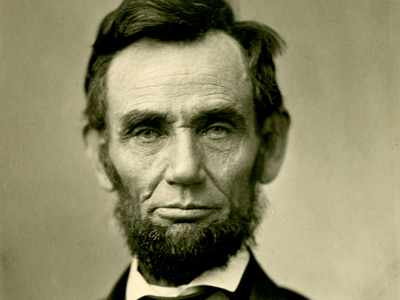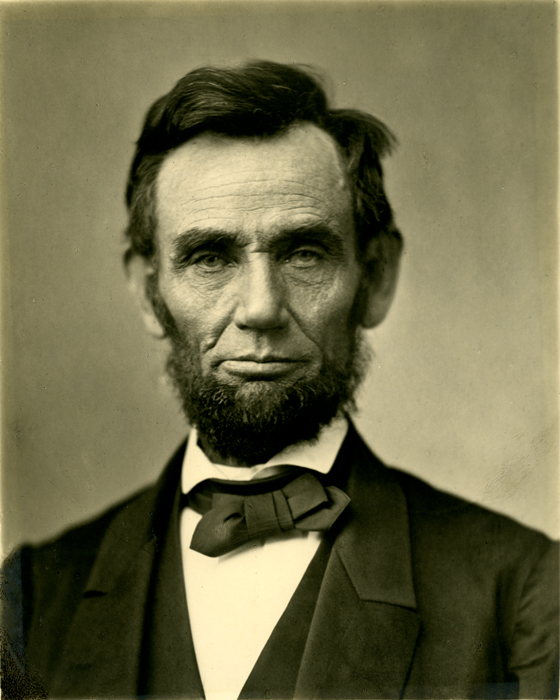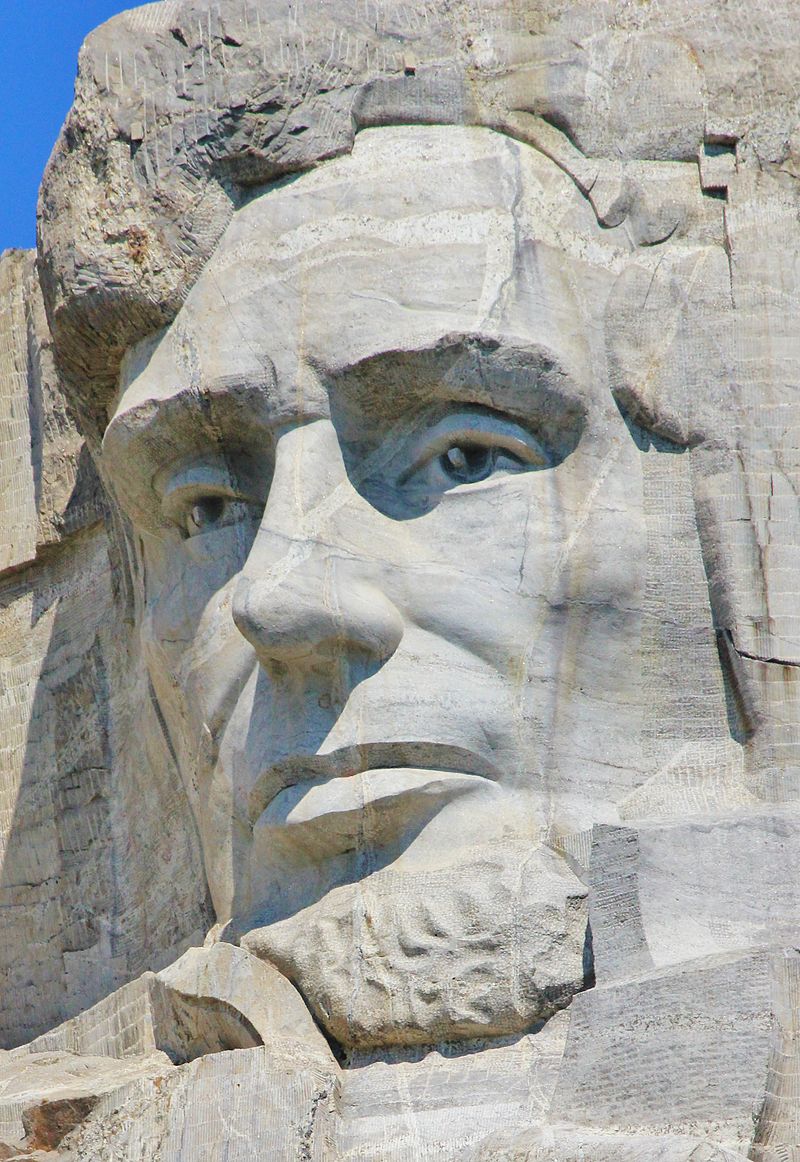Abraham Lincoln (1809-1865)
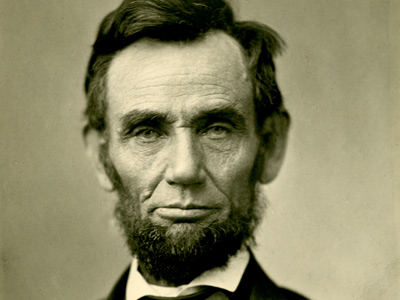
1860 Election and Secession
On November 6, 1860, Lincoln was elected the 16th president of the United States, beating Douglas, Breckinridge, and Bell. He was the first president from the Republican Party. His victory was entirely due to the strength of his support in the North and West; no ballots were cast for him in 10 of the 15 Southern slave states, and he won only two of 996 counties in all the Southern states.
Lincoln received 1,866,452 votes, Douglas 1,376,957 votes, Breckinridge 849,781 votes, and Bell 588,789 votes. Turnout was 82.2 percent, with Lincoln winning the free Northern states, as well as California and Oregon. Douglas won Missouri, and split New Jersey with Lincoln. Bell won Virginia, Tennessee, and Kentucky, and Breckinridge won the rest of the South.
Although Lincoln won only a plurality of the popular vote, his victory in the electoral college was decisive: Lincoln had 180 and his opponents added together had only 123. There were fusion tickets in which all of Lincoln's opponents combined to support the same slate of Electors in New York, New Jersey, and Rhode Island, but even if the anti-Lincoln vote had been combined in every state, Lincoln still would have won a majority in the Electoral College.
As Lincoln's election became evident, secessionists made clear their intent to leave the Union before he took office the next March. On December 20, 1860, South Carolina took the lead by adopting an ordinance of secession; by February 1, 1861, Florida, Mississippi, Alabama, Georgia, Louisiana, and Texas followed. Six of these states then adopted a constitution and declared themselves to be a sovereign nation, the Confederate States of America. The upper South and border states (Delaware, Maryland, Virginia, North Carolina, Tennessee, Kentucky, Missouri, and Arkansas) listened to, but initially rejected, the secessionist appeal. President Buchanan and President-elect Lincoln refused to recognize the Confederacy, declaring secession illegal. The Confederacy selected Jefferson Davis as its provisional President on February 9, 1861.
There were attempts at compromise. The Crittenden Compromise would have extended the Missouri Compromise line of 1820, dividing the territories into slave and free, contrary to the Republican Party's free-soil platform. Lincoln rejected the idea, saying, "I will suffer death before I consent ... to any concession or compromise which looks like buying the privilege to take possession of this government to which we have a constitutional right."
Lincoln, however, did tacitly support the proposed Corwin Amendment to the Constitution, which passed Congress before Lincoln came into office and was then awaiting ratification by the states. That proposed amendment would have protected slavery in states where it already existed and would have guaranteed that Congress would not interfere with slavery without Southern consent. A few weeks before the war, Lincoln sent a letter to every governor informing them Congress had passed a joint resolution to amend the Constitution. Lincoln was open to the possibility of a constitutional convention to make further amendments to the Constitution.
En route to his inauguration by train, Lincoln addressed crowds and legislatures across the North. The president-elect then evaded possible assassins in Baltimore, who were uncovered by Lincoln's head of security, Allan Pinkerton. On February 23, 1861, he arrived in disguise in Washington, DC United States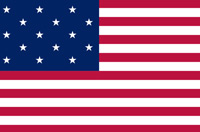 The United States of America (U.S.A. or USA), commonly known as the United States (U.S. or US) or America, is a country in North America. It is the world's third-largest country by both land and total area. The United States shares land borders with Canada to its north and with Mexico to its south. The national capital is Washington, DC, and the most populous city and financial center is New York City., which was placed under substantial military guard. Lincoln directed his inaugural address to the South, proclaiming once again that he had no intention, or inclination, to abolish slavery in the Southern states:
The United States of America (U.S.A. or USA), commonly known as the United States (U.S. or US) or America, is a country in North America. It is the world's third-largest country by both land and total area. The United States shares land borders with Canada to its north and with Mexico to its south. The national capital is Washington, DC, and the most populous city and financial center is New York City., which was placed under substantial military guard. Lincoln directed his inaugural address to the South, proclaiming once again that he had no intention, or inclination, to abolish slavery in the Southern states:
Apprehension seems to exist among the people of the Southern States that by the accession of a Republican Administration their property and their peace and personal security are to be endangered. There has never been any reasonable cause for such apprehension. Indeed, the most ample evidence to the contrary has all the while existed and been open to their inspection. It is found in nearly all the published speeches of him who now addresses you. I do but quote from one of those speeches when I declare that "I have no purpose, directly or indirectly, to interfere with the institution of slavery in the States where it exists. I believe I have no lawful right to do so, and I have no inclination to do so."
— First inaugural address, 4 March 1861
The President ended his address with an appeal to the people of the South: "We are not enemies, but friends. We must not be enemies ... The mystic chords of memory, stretching from every battlefield, and patriot grave, to every living heart and hearthstone, all over this broad land, will yet swell the chorus of the Union, when again touched, as surely they will be, by the better angels of our nature." The failure of the Peace Conference of 1861 signaled that legislative compromise was impossible. By March 1861, no leaders of the insurrection had proposed rejoining the Union on any terms. Meanwhile, Lincoln and the Republican leadership agreed that the dismantling of the Union could not be tolerated. Lincoln said as the war was ending:
Both parties deprecated war, but one of them would make war rather than let the Nation survive, and the other would accept war rather than let it perish, and the war came.
HISTORY
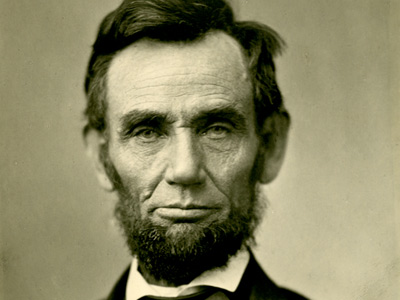
RESOURCES
This article uses material from the Wikipedia article "Abraham Lincoln", which is released under the Creative Commons Attribution-Share-Alike License 3.0.
© Stories Preschool. All Rights Reserved.
